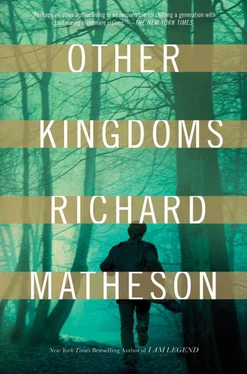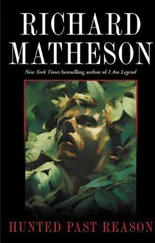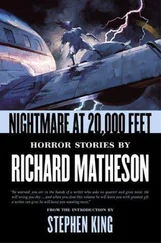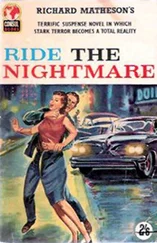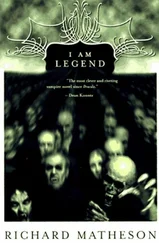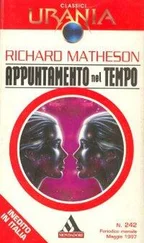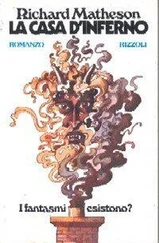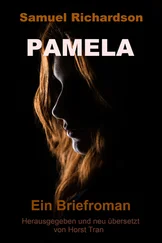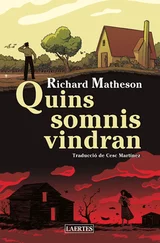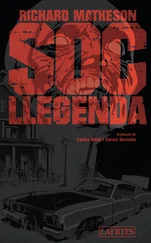“Yes, sir, I am,” I responded.
“Just arrived?”
“This morning,” I said.
“Ah- ha .” He nodded as though my reply had some significance, then said, “Wot’s yer name, lad?”
“Alex,” I told him. “Alex White.”
“Alex White,” he repeated. “Good name.”
“Thank you,” I said.
“I’m Tom,” he said, extending his right hand.
“Pleased to meet you,” I said, the word “meet” emerging like a wheeze as his bone-crushing grip crushed the bones in my hand. Felt like it, anyway.
“So wot’s yer pleasure, Mr. Whitehead?” he inquired. Jesus, I thought, was getting my last name wrong something in the water? First Harold, now Tom. “Ale,” I told him.
He rattled off the names of seven different brands. I replied that any one would do; give me the one he thought was the best. While he drew the brew (good rhyme, that), I stopped and opened my duffel bag to take out the lump of gold.
If I had placed a giant rearing spider on the counter, I doubt I would have evoked more of a recoil on his part—so excessive that he splashed out half my ale. “Whoa!” he cried.
I could not disguise my surprise: another good rhyme. “What?” I asked.
His next words were equally surprising. “Take it off,” he said, actually he ordered.
“What’s wrong?” I asked, confused.
“I just…” He grimaced as though in anger—or in pain.
A chill ran up my back. He sounded alarmed, almost frightened. I removed the lump of gold from the counter and slipped it into my jacket pocket. “I don’t understand,” I said. “Why does it bother you?”
“Where did you get it?” he asked—again, demanded.
“From a friend,” I said.
“A friend ?” he sounded—at the very least—dubious.
“Yes,” I answered. “A British soldier.”
“Named Lightfoot?” he said, he didn’t ask.
Now I was totally perplexed. “Yes, Harold Lightfoot,” I told him, “in France.”
“Why did he give it to you?” he wanted to know.
I was becoming irritated by then. “Because he was dying, ” I said coldly.
“Dying.”
“That’s right, dying, ” I said.
He stared at me, then said, “Harold Lightfoot.”
“Yes,” I said. I was really angry now. “What’s the problem anyway? It’s just a piece of gold.”
“I know it’s a piece of gold, Whitehead,” he said. Christ! I thought, it’s White! White!
“So?” I demanded now, “What’s the problem?”
His change of manner was as confounding as his obvious dismay had been. He smiled pleasantly. “No problem,” he said, “one doesn’t see gold lumps that big very often, or ever.” He smiled again. “Sorry I railed at you.” I knew, somehow, that he was lying. There was more to this than rarely—or ever—seeing lumps of gold that big. A good deal more. But what?
Our conversation after that—if it could be called a conversation—was empty talk. Where was I from? What was it like in France? Was I planning to stay in Gatford? I soon gave up trying for an explanation of his cold behavior re the lump of gold. Taking my glass of ale and duffel bag across the room, I sat at a table by the window—through which precious little daylight penetrated. There I sat, mulling over the peculiar—aggravating—incident. I took the lump of gold from my jacket and examined it. Mystery on mystery, I thought. What was the answer?
“Mr. White,” said the quiet voice, making me start.
I looked up. Standing by the table was a shadowy figure.
“Yes?” I said.
“May I sit down?” he asked, sitting down.
Since I did not have to respond to his pointless request, I didn’t. I regarded him as he sat across from me. He was elderly, I saw, lean, his expression sedate. Later, I learned that his sedate expression did not denote peace of mind so much as permanent sedation; he lived on drugs.
“My name is Brean,” he told me, “Michael Brean.” He extended his right hand in a “shake” position. I felt I could not ignore the gesture, so I shook it. “Hello,” I said.
“And hello to you, Mr. White,” he responded. Just as I was wondering how he knew my correct name, he added, “I overheard your discourse with Tom.” Discourse, I thought. Is that what it was?
A few moments’ silence. Then he said, “About your gold.”
Aha! I thought. Suspicion? I suppose.
“May I look at it?” he asked. At that very second, sunset light managed through the grimy window, altering his look of sedation to one of—well, close to it, anyway—menace. “Well, I don’t know,” I heard myself say. Impulsively—unthinkingly.
“Oh, please,” he said, “I’m Gatford’s only jeweler.”
Does that mean anything? I thought. Then greed o’erwhelmed suspicion, as Shakespeare might have put it. Might he actually purchase the lump of gold? I set it on the table before him. “Let me know what you think,” I said.
Did I imagine it, or did he really lick his upper lip, really bare his teeth? It must have been imagined; another early sign of Arthur Black’s bugbears. Or else it really happened. In light of future events, it was certainly possible. But let that go for now. I know it was true that Mr. Brean eyed the gold lump with a covetous eye. The breath he drew in was a strained breath. The rapidity with which he unpocketed his spectacles was not imagined.
He must have examined the lump of gold for several minutes (it seemed longer) before he said, in a remarkably calm voice (it occurred to me later), “Yes, it’s gold, all right. Pure gold.”
“Care to buy it?” I asked quickly—greedily—obviously.
He looked at me with hooded eyes. Was he suspecting me now? Was I a thief? Had I purloined the lump? Or—more likely—found it by some roadside and made no attempt to find its rightful owner? All visible on his sedate but questioning features.
Then he said, “Well, let’s discuss it.”
A dropping sensation in my stomach. He wasn’t going to make an offer. Nothing like it.
“Sure,” I said. Then I added, suspicious again, “I know it must be valuable, though.”
“Oh, undoubtedly,” he said, apparently agreeing.
I felt better then. Part of me cautioned, Don’t let him flummox you now. But not so strongly as it might have been. I was, fundamentally, ready to do business.
“You got it from—where?” the old man asked.
“A soldier friend in France,” I said.
“Lightfoot.” He nodded.
“Yes.”
“And he got it from?” he asked.
“His family,” I answered.
“Ah.” He nodded again. “His family. ” I didn’t like the way he said that.
* * *
The conversation—or, as you may suspect, the interrogation—went on for some time. He asked me if I knew that ancient Egyptians were obsessed by gold. (To vindicate his own obvious inclination?) Pharaohs were buried in gold coffins; they referred to gold as “the flesh of the gods.” Although gold had little practical use (he assumed that I knew), it had always possessed a magical enchantment for mankind—and, clearly, him.
Gradually, my suspicions faded. Not about the lump of gold. I grew more curious about its source all the time. No, my suspicion regarding Mr. Brean. It became obvious that he wanted to own the gold, that he regarded it as a highly desirable piece of Nature’s handiwork. Simply put, he wanted to purchase it at a price.
Which is what it sold for—a price, that being one hundred pounds. I knew it had to be worth more, and so did he. Accordingly, in the written contract (I thought I was being very shrewd insisting on it), Mr. Sedate Face agreed that if the lump of gold brought in more return from the city emporium he did business with (never identified), he would share the profit with me. How this worked out—shall I hint horrendously?—I will reveal later. Another mystery on mystery.
Читать дальше
